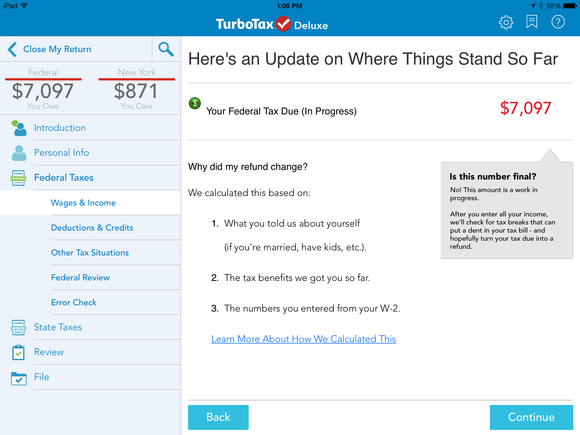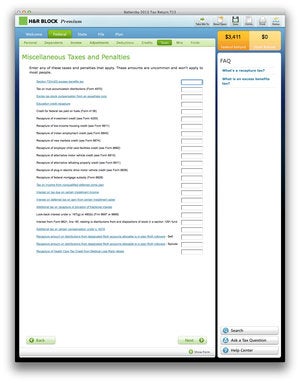Sonoma Valley Sun writes: With her 2009 book “Taxpertise: The Complete Book of Dirty Little Secrets and Tax Deductions for Small Business the IRS Doesn’t Want You to Know,” Sonoma tax expert Bonnie Lee covered – and uncovered – the basics for the average taxpayer. But when her agent suggested a tax-tip book for writers, artists and other right-brained thinkers, Lee figured most creative types wouldn’t read a straight book about taxes.
“They might, though, “she figured, “be inclined to read a spicy, fast-paced and humorous love story with a murderous plot twist, that coincidentally has tax tips at the end of each chapter.”
The result is her new e-book “Taxpertise: A Novella for the Creative Mind, Murder Mayhem, Romance, Comedy… & Tax Tips for Artists of All Kinds.” (Available @ iTunes ,
Barnes & Noble & Amazon .
“They said there’d be no math,” and they are right! You learn enough to ask intelligent questions of qualified tax professionals and steer your business in a direction that will help you save tax dollars! And be entertained at the same time.
Starving artists? Lee figures many of them are hungry because they pay too much in taxes. Why? “Because most artists hate numbers and consequently don’t deal with them too well. I was asked to write a tax book specifically for artists but my first thought was, ‘Would anyone actually read it?’ I pictured artists with insomnia purchasing this book as a sleep aid.”
Instead, she chose a format that would be entertaining, a novella, complete with a sexy tax professional and a flirty client whose previous bookkeeper gets murdered, all in real Sonoma settings.
Lee, who also writes a monthly column for The Sun, wrote the novella during the 2013 National Novel Writing Month, when authors are challenged to write a 50,000-word novel in a month. She did it, and turned to Bookbaby to publish and distribute the book on all-digital platforms.
Judy Baker, of Sonoma’s Brandvines, created the cover for the book, which is available at Taxpertise.com.
“Meals and Entertainment”
A chapter excerpted from “Taxpertise: A Novella for the Creative Mind, Murder Mayhem Romance Comedy… & Tax Tips for Artists of All Kinds” by Sonoma tax expert and author Bonnie Lee.
I want to believe that my client Luke is not a crook. I really do. But I continue to have the nagging sensation that he knows exactly what is going on with those financial transactions. Something else that I just can’t quite put my finger on. Maybe it’s because he’s put me off. Maybe that’s what’s bugging me. You would think he would run straight into my professional arms and allow me to get to the bottom of it. Instead he ran me out of his house with a promise to call soon after “checking this out.” And without mentioning dinner again. Damnit.
It’s been almost ten days and I haven’t heard from him.
I am disappointed, worried, and upset. I give up. It’s none of my business anyway. On a personal level, it feels as though something that started out with such promise has turned sour. And on a professional level, I have the feeling I’ve been fired.
So I call Susan. She agrees to meet me for lunch at Della Santina’s, which is by far the best Italian comfort food I’ve ever had. It’s also where Luke suggested we go to dinner. Do I think that will draw me closer to him merely by eating at the restaurant he suggested? Or since he likes the place, maybe I’ll run into him there. Or is it that I want the four mushroom penne pasta?
Lunch can last as long as two hours at Della Santina’s. Even if I don’t order wine, Marco always brings me a glass or two of Robert’s latest blend. Robert is the owner’s son and he recently started creating his own vintages which he sells at the restaurant and at the wine bar next door. They are delicious.
I never go to Della Santina’s during tax season. First of all, there’s never that window of time to lollygag over fine cuisine and I certainly will not have wine, free or not, on my breath while interviewing a tax client or while preparing an income tax return. I’m considered aggressive anyway, putting spins on questionable deductions while picturing myself defending them to a sour-faced auditor. Imagine what a glass of wine would do to that aggression. I can see it now, “Hell yeah! Vacation to Rome? Let’s deduct it!”
Not very smart nor is it very professional.
But tax season is over. I have no appointments this afternoon so I decide to lunch with Susan and take the rest of the day off.
We settle in at my favorite table; it’s outside under the grape arbor right next to the fountain. The sound of flowing water is soothing. The tabletop is dressed prettily in white linen with a tiny vase of dianthus and a carafe of olive oil. And here comes Marco with a big smile and a couple of glasses of ice water. He tells us that Robert has created a Pinot Grigio that he wants us to try. I glance at the host station to see Robert leaning against it watching us. He smiles and waves.
Susan tells me that she is paying today. “You know I can’t afford your fee for the audit, so I can at least buy you lunch.”
“Like I’d even bother to charge you. Don’t worry about it.”
“Well, I do worry. I don’t want you to think I’m taking advantage of you.”
I laugh. “Yeah, right. Hey, we’re family. Besides, look at all the stuff you’ve done for me in the past.”
“So can I write off this lunch?”
“Yep, we talked about the audit right before we got here, so the lunch is deductible. We had a substantial business discussion.”
“Before I forget, I’m having a party in a couple of weeks and I want you to come. Can I write that off?”
“What’s the theme of the party?”
“Just a party. That’s all. Booze, music, dancing.”
“Who’s going to be there?”
“Oh, I get it. Okay, it’s all professionals. You know, other writers, editors, my tax person,” she nudges my elbow, “my agent, you know, all the big shots in the industry.”
“Are you going to do a reading?”
“As if. I don’t have anything ready yet. This is just to introduce people to each other in the industry. I can write it off, right?”
“Sorry, no.”
“What? What the hell, you’re kidding me, right?”
“Do a reading and you can write it off. Put that on the invite and keep a copy of it in your tax file. Then you can deduct the expenses. Remember: you got to have a substantial business discussion.”
Susan rolls her eyes and sits back in her chair. “Okay, I’ve had enough for one day. This is definitely a deductible meal.”
I feel a hand brush my elbow and look up expecting to see Robert but am surprised by Dominic. “Hey, Kim, good to see you. Been a while.” For such a casual opener his voice has a furtive quality. He seems nervous. A bead of sweat runs down his forehead and catches in his eyebrow. He doesn’t quite meet my eyes. They dance around the patio area then finally focus on me.
“Oh hey, Dominic. How’s it going? Hey are you okay? What’s wrong?”
“Good. Good. No, I’m fine.” Dominic’s dark brown eyes cut around the patio area again then rest on Susan. I introduce them and Dominic politely but succinctly acknowledges her. He leans down and almost whispers, “Listen, I’ve got to talk to you about something important but we can’t do it here.”
“What is it, Dominic?”
He ignores the question. “Can you meet me later today, say around 3 p.m., Town Square?”
“Yeah, I can. Hey, does this have anything to do with Luke Hunter?”
Dominic bolts upright and scans the patio area again. “Just meet me there at three.” He quickly moves away.
A man in a dark brown suit sitting at a table alone in the far corner of the patio watches the entire transaction. When Dominic leaves, he stands, puts a hundred dollar bill on the table and casually strolls out through the front entrance. He takes a good look at Kim as he leaves.
Taxpertise tips for meals and entertainment:
• You cannot deduct repeated lunches with business associates where one time it’s your turn to pay and the next time it’s his or her turn to pay.
• You cannot write off the cost of entertainment facilities including mortgage interest, property taxes, depreciation, and rent for swimming pools, bowling alleys, tennis courts, cars, homes in a vacation resort, boats, etc. You can write off the cost of a hotel hospitality suite during a trade show but you cannot write off the cost of a yearlong contract for a hotel suite that you use for entertainment purposes
• You cannot deduct dues paid to golf and athletic clubs, country clubs hotel clubs and clubs that provide meals while participating in business discussions
• Always keep documentation to prove your case in the event of audit
• If you are having a party, make sure the invitation announces a business purpose and keep a copy of the invitation in your tax file
• Keep a guest list. Have attendees sign a guest book or track RSVPs so you can prove an accurate allocation of the expense between employees (100 percent deductible), independent contractors, clients, and potential clients (50 percent deductible) and family members and friends (not at all deductible), unless one of them is your tax pro.
• Take pictures of guests looking at your new products or a video clip of your latest work; anything that proves the business purpose.
• Keep all receipts for all expenses incurred. You needn’t provide receipts if the meal or entertainment cost less than $75. A journal entry in your appointment book with the amount, location, and names of those you entertained is sufficient.
• Maintain all of the above documentation in your tax file.
• Meals provided to employees during business hours for your convenience (usually to keep them there working during a crisis or busy time) are 100 percent deductible. Track these costs separately, under a category called “crew meals” on your books so that at tax time your tax pro doesn’t inadvertently apply the 50 percent rule
• For more information refer to IRS Publication 463.
“Taxpertise: A Novella for the Creative Mind, Murder Mayhem, Romance, Comedy… & Tax Tips for Artists of All Kinds.” (Available @ iTunes , Barnes & Noble & Amazon .


